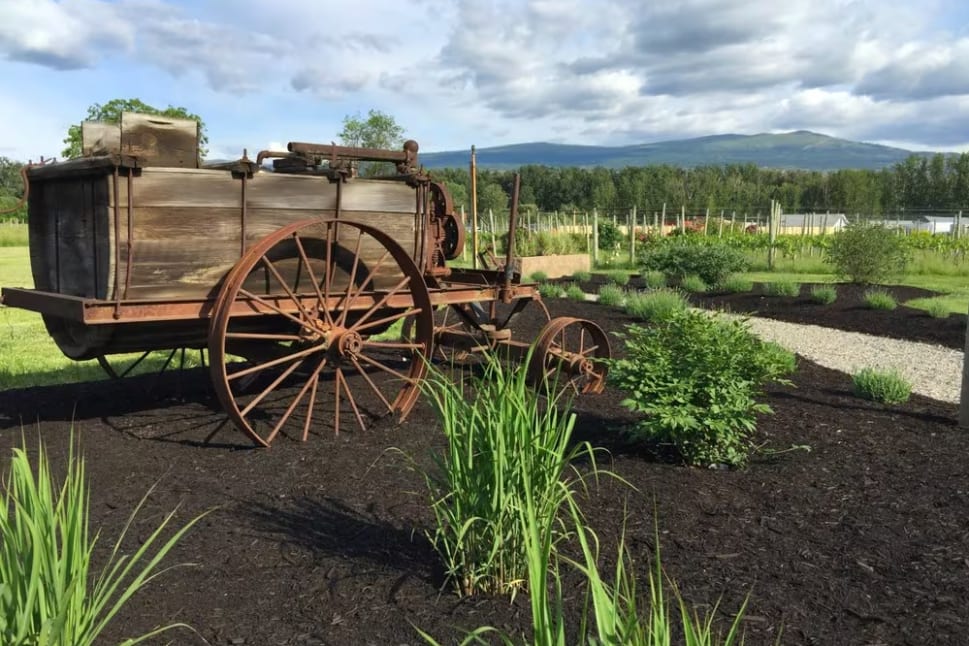Introduction
Tracing the roots of Kelowna's wine industry reveals a story of heritage, resilience, and a deep connection to the land. In a valley where the legacy of viticulture dates back over a century, Kelowna is home to some of the most storied wineries in Canada. Explore the origins and evolution of the city's oldest wineries, where each vine and vintage carries echoes of a rich past.
The Dawn of Winemaking in Kelowna
The seeds of Kelowna's winemaking tradition were sown in 1859, when Father Charles Pandosy, a French oblate missionary, established the first non-native settlement in the BC Interior. At the Mission de L’Immaculée Conception near Mission Creek, Pandosy planted the region's first grapevines for sacramental purposes. These early vines marked the inception of a burgeoning industry, anchored in a valley blessed with fertile land, ideal for agriculture and viticulture.
The Okanagan Valley's unique geological history, with lakebed sediments rich in gravel, silt, and sand, created perfect conditions for vineyards. Pandosy's introduction of grapevines was a pivotal moment, starting the journey towards a prosperous winemaking future in Kelowna. From these humble beginnings, centred on religious ceremonies, the winemaking practice in Kelowna gradually evolved, adapting to the region's colder climates and blossoming into a robust industry.
Calona Vineyards: Kelowna's Wine Pioneer
Founded in 1932, during the Great Depression, Calona Vineyards is one of the oldest wineries in the valley. It emerged at a time when Kelowna's economy was largely dependent on apples and port services. Cap Capozzi, a local grocer, and W.A.C. Bennett, a hardware store owner that would later become B.C.'s longest-serving Premier, were the driving forces behind Calona Vineyards, marking the start of a journey that would reshape Kelowna's agricultural landscape.
Initially known as Domestic Wines and By-Products Co., the winery evolved into Calona Vineyards in 1936, moving to its Richter Street location in 1951. In its early years, Calona produced wines that were modest in quality, but the 1980s brought about significant changes. The North American Free Trade Agreement (NAFTA) and the formation of the B.C. Wine Authority set minimum quality standards, propelling a dramatic improvement in the quality of B.C. wines.
Sperling Vineyards: A Family Legacy
The story of Sperling Vineyards intertwines with the Casorso family, pioneers of Kelowna’s viticulture. Giovanni Casorso, an Italian immigrant, arrived in the late 1800s, working as an agricultural specialist under Father Pandosy. In 1925, Charles Casorso planted Kelowna's first official vineyard, laying the groundwork for what would become Sperling Vineyards.
Today, Sperling Vineyards, officially established in 2008, is the enduring legacy of the Casorso family. Situated on the original Casorso property, the vineyard boasts a range of grape varieties, including a 45-year-old planting of Marechal Foch and a 35-year-old planting of Riesling. These vines, cultivated with care and tradition, produce wines that encapsulate the rich history of the region.
Ancient Hill Winery: Reviving a Lost Vineyard
Ancient Hill Winery, located near Kelowna International Airport, stands on a site with a history that echoes back to the 1940s. Originally a vineyard, the land was converted to an orchard after severe winter weather decimated the vines. However, the fluctuating fortunes of orcharding led to a decision to replant a vineyard on the property.
The Rittich brothers, key figures in Okanagan viticulture, had imported various European grape varieties in the 1930s, conducting trials to identify those best suited to the region. The vineyard at Ancient Hill was replanted in 2005, with a focus on varieties like Baco Noir, Pinot Noir, and Gewurztraminer. This winery symbolizes a revival of a historic vineyard and a commitment to producing wines that reflect the unique terroir of Kelowna.
Conclusion
Kelowna's oldest wineries are more than just producers of fine wines; they are custodians of a rich viticultural heritage. These establishments, each with their unique story, have played a pivotal role in shaping the wine industry of the region. Visiting these historic wineries offers a glimpse into the past and a taste of the exceptional wines.





